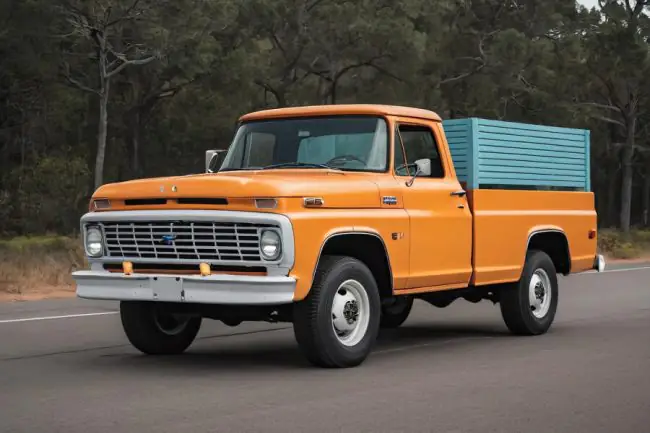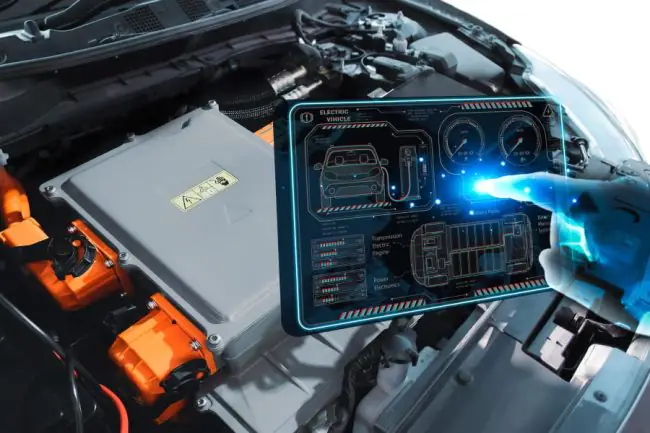The automotive industry is in the middle of a transformation towards electrification, and iconic pick-up trucks are no exception. These vehicles, long known for their power and ruggedness, are now part of the shift toward a greener future.
As we move away from gasoline engines and embrace electric motors, the electrification of pick-up trucks is becoming a significant step towards sustainability.
Educate yourself through this guide on how the electrification of pick-up trucks is reshaping the automotive industry, contributing to environmental protection, and offering both practical and sustainable alternatives for consumers and manufacturers alike. Let’s walk into this electrifying revolution!
The Shift to Electrify Iconic Pick-Up Trucks
The electrification of pick-up trucks is more than a technological upgrade it’s a step toward a sustainable future. Traditionally, pick-up trucks have been associated with power and performance, but this often came at a cost to the environment.
With poor fuel efficiency and high emissions, these trucks have contributed significantly to air pollution and global warming.
The good news is that electrification is changing this narrative. Electric pick-up trucks are emerging as eco-friendly alternatives that maintain the performance and durability truck owners expect while drastically reducing their environmental footprint.
This shift toward electrification represents a broader movement in the automotive industry, where sustainability is becoming a top priority.
A Brief History of Pick-Up Trucks
To understand the importance of electrification, it’s worth looking at the history of pick-up trucks.
These vehicles have been a symbol of freedom and strength for decades, particularly in regions like Spain and the United States. However, their internal combustion engines (ICEs) have always been major sources of carbon emissions and fuel inefficiency.
Today, electrification offers a way to preserve the spirit of pick-up trucks while making them more compatible with our modern environmental goals.
By shifting to electric power, we can enjoy the rugged utility of these vehicles without the heavy carbon footprint that has long been associated with them.
Environmental Impact of Conventional Pick-Up Trucks
Conventional pick-up trucks are known for being fuel-thirsty, and their environmental impact is significant. The high levels of CO2 emissions contribute to air pollution, smog, and global climate change.
The electrification of pick-up trucks, however, is set to reverse much of this damage. By producing zero tailpipe emissions, electric trucks reduce greenhouse gases and help combat air quality issues.
The Promise of Sustainability Through Electrification
The electrification of pick-up trucks offers a promising path toward sustainability. Electric pick-ups can be powered by renewable energy sources such as wind or solar, further enhancing their eco-friendliness.
Charging these vehicles using clean energy creates a full cycle of sustainability, making electrification an important element in reducing the automotive industry’s carbon footprint.
Electric Pick-Up Truck Models
The demand for electric vehicles (EVs) is growing, and the electrification of pick-up trucks is leading the charge.
Several major automakers are releasing electric pick-up models that blend the traditional strength of these vehicles with cutting-edge electric power. Here are some standout examples:
- Rivian R1T: A groundbreaking electric truck designed for off-road adventures with a long-range battery.
- Ford F-150 Lightning: Ford’s legendary pick-up truck has been electrified, combining the durability of the F-150 with sustainable electrification.
- Tesla Cybertruck: With its futuristic design and all-electric powertrain, the Cybertruck is set to revolutionize the pick-up truck market.
These electric models highlight the future of the industry, where electrification is key to sustainability without sacrificing performance.
Benefits of Electric Pick-Up Trucks
The electrification of pick-up trucks offers several benefits, from environmental to economic:
- Lower Emissions: Electric trucks produce no tailpipe emissions, helping reduce pollution and fight climate change.
- Cost Efficiency: Electricity is cheaper than gasoline, making electrification a financially smart move in the long run.
- Low Maintenance: Electric motors have fewer moving parts, reducing maintenance costs compared to internal combustion engines.
With the electrification of these vehicles, users not only contribute to a greener planet but also enjoy savings and lower running costs.
Challenges and Solutions
While the electrification of pick-up trucks has numerous benefits, it also presents some challenges:
- Battery Range: One of the biggest challenges in electrification is extending the range of electric vehicles. Pick-up trucks, in particular, require more energy due to their size and weight.
- Charging Infrastructure: Another barrier is the need for widespread charging stations, especially in rural areas where pick-ups are commonly used. However, governments and private companies are working to improve this infrastructure.
Innovative Solutions for Sustainable Electric Trucking
To overcome these obstacles, the industry is focusing on innovation. Advancements in battery technology, such as solid-state batteries, are key to the future of electrification.
These batteries offer higher energy densities and faster charging times, making electric trucks more viable for long-distance use. Expanding charging infrastructure is also essential for the mass adoption of electric trucks.
In Spain and other countries, the development of fast-charging networks is helping make electrification more accessible to consumers, allowing them to charge their vehicles conveniently.
Role of Electrified Pick-Up Trucks in the Automotive Industry
The future of electrification in the automotive industry looks bright, with electric pick-up trucks set to play a crucial role.
Governments around the world are implementing stricter emissions regulations, and the shift to electric trucks aligns with these sustainability goals.
As technology advances and infrastructure improves, the electrification of pick-up trucks will likely become the standard, contributing to a cleaner and greener transportation sector.
Impact on Sustainability Goals and Carbon Emissions Reduction
The electrification of pick-up trucks is not just a trend it’s a pivotal strategy in reducing the transportation sector’s carbon footprint.
By switching to electric power, pick-up trucks can significantly lower greenhouse gas emissions, helping countries meet their sustainability targets and reduce their reliance on fossil fuels.
Conclusion
The electrification of iconic pick-up trucks marks a significant step towards a more sustainable future. By blending the rugged power of traditional trucks with the environmental benefits of electric vehicles, electrification offers a solution to one of the automotive industry’s biggest challenges: reducing emissions while maintaining performance.
As more automakers embrace this change and the infrastructure for electric vehicles continues to grow, the future of electric pick-up trucks is set to be both exciting and sustainable. The road ahead is clear: electrification is the way forward for a greener, more efficient world.
FAQs
What is the sustainability of electric cars?
Electric vehicles (EVs), including electrified pick-up trucks, are more sustainable as they emit no tailpipe emissions and can be powered by renewable energy sources.
What is the impact of electric vehicles on sustainable development?
Electric vehicles contribute to sustainable development by reducing pollution, cutting down on fossil fuel use, and lowering greenhouse gas emissions, all of which are key elements of sustainability goals.
What are the five types of electric vehicles?
The five types of electric vehicles include Battery Electric Vehicles (BEVs), Plug-in Hybrid Electric Vehicles (PHEVs), Hybrid Electric Vehicles (HEVs), Fuel Cell Electric Vehicles (FCEVs), and Extended Range Electric Vehicles (EREVs).
How efficient are electric vehicles?
Electric vehicles are highly efficient, with electrification allowing them to convert over 90% of the energy stored in batteries into motion, compared to about 30% for traditional gasoline engines.






